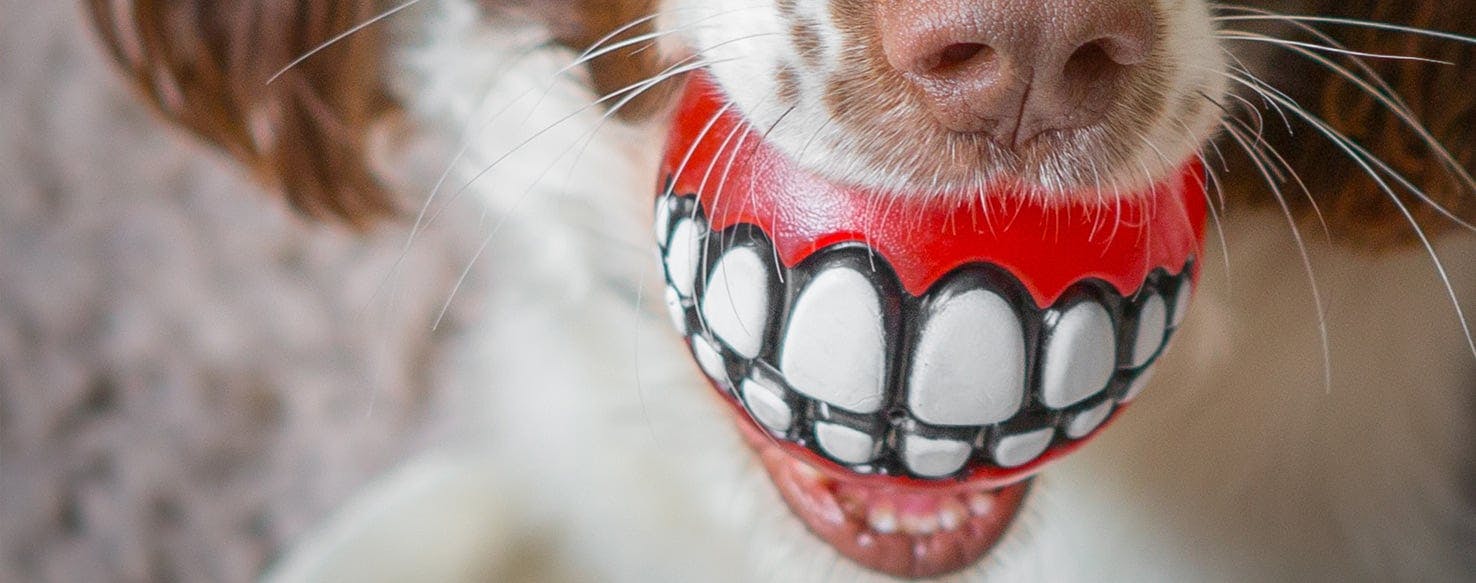Don’t take offense, but are you and your dog more alike than you think? Dogs still need food, drink and exercise like us, so is your dog capable of catching the same illnesses as you and can they benefit from the same medical treatments? Take dentures for example; in humans they replace teeth, preventing other teeth migrating into empty spaces while restoring chewing and jaw functions. But you must be cautious when approaching oral problem in dogs, as you don’t want to damage their mouth, an essential tool for life. But can your dog even get dentures?
Can Dogs Get Dentures?
YES!
Some people may think that dentures are used on humans only, for aesthetic reasons, helping to prevent depression and low self-esteem. But it is absolutely possible for your dog to get dentures too! It is not a routine procedure, though and the risks and expense must be carefully considered.
Does My Dog Need Dentures?
Dentures could help your dog in a number of ways, but when should you consider doggie dentures? You should think about dentures if your dog has periodontal (gum) disease or rotting/missing teeth. Does one or more tooth look inflamed? Can you see separation from the tooth and gum? In severe cases, the gum tissue will recede completely and the roots of the teeth will be completely exposed.
But what causes your dog’s nashers and gums to deteriorate in this way? It is usually bacteria that is to blame. The main two causes are Streptococcus and Actinomyces bacteria. Canine toy breeds with crowded teeth are also more likely to develop problems. Plus, if dogs groom themselves and have a poor diet, they too are more likely to develop teeth and gum conditions.
So you suspect your dog has a condition that may require dentures, but how will your vet diagnose the problem? Firstly, if a periodontal probe reveals more than 2 millimeters of distance between the affected tooth and gum, a dog is considered to be suffering with a medical abnormality. Radiographs will then be used, as many symptoms and damage are hidden beneath the gum line. Fortunately, vets are becoming increasingly apt at diagnosing
conditions that may require doggie dentures.
How Do I Treat My Dog With Dentures?
Unfortunately, getting your dog their new dentures isn’t always a straightforward process. If your dog needs a bone graft inserted into the gums, the process and recovery could take a few months. Then the procedure for fitting the dentures themselves will follow. A titanium screw will be fitted under anesthetic and after 3 to 6 months of observation to see whether the tooth integrates with the body satisfactorily, abutments and ceramic teeth will be fitted. So it is not a straightforward procedure, but it can be effective!
As the whole process may take many months, recovery could also take months. However painkillers may be prescribed, and a gentle diet, while the implants are new, may need to be followed. Also, regular dental checks will be necessary, and they could take place up to several times a year. But your dog may have full chewing functioning restored, not to mention shiny new nashers!
For first-hand accounts from other owners about teeth and gum disease, check this article:
Gum Disease in Dogs How Are Dentures Similar in Dogs and Humans?
You might be surprised to learn there are several similarities in the way dentures are fitted in dogs and humans, plus similar symptoms in both that suggest the need for dentures. Some of those similarities are:
-
In both humans and dogs, teeth can migrate into the empty space where teeth once were if dental implants are not used.
-
In both humans and dogs, a visible gap between the tooth and gum may indicate disease and a need for dentures.
-
Dentures can be required in both dogs and humans as a result of gum disease.
-
In both, dentures can be needed to restore the chewing function, vital for eating.
How Are Dentures Different in Dogs and Humans?
While we have seen that in some ways, dentures are needed for similar conditions and implemented to rectify the same problems, there are also some ways that the symptoms, conditions and purpose of the dentures vary. Some of those differences are:
-
Dentures in humans can be used for esthetic appearance, to prevent low self-esteem.
-
Symptoms in dogs need to be more severe than in humans, as the efficacy of their oral functions needs to be severely impaired to warrant dentures.
-
Canine dentures can be more easily damaged as dogs use their teeth for chewing and biting of more abrasive materials than humans.
Case Study
Porridge was an 8 year old Labradoodle whose gums had deteriorated. Four teeth had migrated across his mouth, not only affecting the shape of his lower jaw, but also preventing him from chewing properly. His owner was understandably concerned when he was not eating his food properly, plus he appeared to have a lopsided jaw. He needed a bone graft initially into his gums, and then 6 months later was fitted with brand new nashers. He recovered swiftly and was back to eating up all his food and leftover dinners in no time. This case showed dentures can go a long way to restoring functionality and normality into a dog’s day to day life!
Your dog's dental health can be a major financial burden. To avoid high vet care expenses,
secure pet health insurance today. The sooner you insure your pet, the more protection you’ll have from unexpected vet costs.


